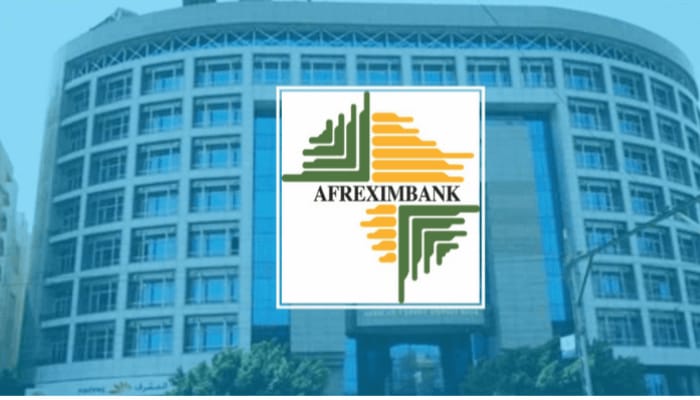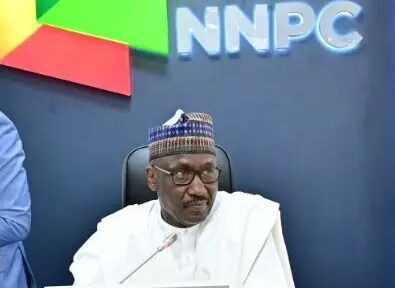Business
Afreximbank Boosts Nigeria’s Economy with $925 Million Crude Oil-Backed Facility

The African Export-Import Bank (Afreximbank) has recently made headlines by announcing an additional $925 million disbursement to Nigeria. This is part of a larger $3.3 billion crude oil-backed prepayment facility arranged for the Nigerian National Petroleum Company Limited (NNPCL). This latest infusion of funds is aimed at bolstering Nigeria’s macroeconomic stability and fostering long-term economic growth. Let’s dive into the details and understand the significance of this financial move.
Afreximbank’s Role and Objectives
Afreximbank, acting as the Mandated Lead Arranger for this facility, has a clear objective: to support economic growth and stability among its member states. By coordinating this substantial funding, Afreximbank demonstrates its commitment to aiding Nigeria in achieving its development goals. This initiative is part of the bank’s broader mission to enhance the economic well-being of African nations through strategic financial interventions.
Details of the $925 Million Disbursement
The $925 million disbursement is channeled through Project Gazelle Funding Limited, bringing the total funded facility size to an impressive $3.175 billion. This funding arrangement was secured from a consortium of crude oil off-taker lenders, including notable names like Oando Group and Sahara Energy Resource Limited. The consortium’s involvement underscores the robust confidence in Nigeria’s oil-backed financial instruments.
Background of the $3.3 Billion Facility
The roots of this financial arrangement trace back to December 2023, when the initial facility received $2.25 billion in commitments. The success of this initial phase set the stage for the additional $925 million disbursement. This significant financial support plays a crucial role in stabilizing Nigeria’s economy, particularly in the volatile oil market.
Prof. Benedict Oramah’s Statement
Prof. Benedict Oramah, President and Chairman of the Board of Directors of Afreximbank, hailed this milestone as a testament to the bank’s unwavering commitment to economic growth and stability in its member states. He highlighted the facility’s landmark status, noting that it is the largest crude oil-backed facility in Nigeria and one of Africa’s most substantial syndicated debts. This achievement reflects strong market confidence in well-structured, commodities-backed instruments.

NNPCL’s Perspective and Plans
NNPCL’s Group Chief Executive Officer, Mele Kyari, expressed deep appreciation for Afreximbank’s investment philosophy and commitment to co-creating prosperity. He reassured investors of NNPCL’s dedication to expanding Nigeria’s hydrocarbon resources and strengthening partnerships within the oil and gas sector. Kyari’s remarks emphasize the strategic importance of this funding in realizing NNPCL’s ambitious goals.
Previous Funding and Economic Impact
In August 2023, NNPCL secured a $3.3 billion emergency crude oil repayment loan from Afreximbank to stabilize Nigeria’s exchange rate. This move was crucial in managing the country’s economic challenges and ensuring financial stability. The additional $925 million disbursement is a continuation of this strategy, aimed at maintaining economic resilience in the face of global market fluctuations.
Prepayment of Future Royalties and Taxes
In January 2024, NNPCL announced plans to use funds from the financing deal to prepay future royalties and taxes to the Federal Government. This proactive approach ensures that Nigeria can manage its financial obligations effectively, even in times of economic uncertainty. The loan agreement, designed with a conservative crude price benchmark of $65 per barrel, minimizes default risks and ensures sustainable repayment strategies.
Project Gazelle’s Structure and Risk Mitigation
Project Gazelle is structured with a conservative crude price benchmark to mitigate risks associated with oil price volatility. NNPCL has allocated up to 90,000 barrels of crude oil to ensure sufficient cash flow for repayment. This strategic planning is crucial for maintaining financial stability and meeting repayment obligations, regardless of fluctuations in oil prices.
Strategic Planning by NNPCL
NNPCL’s strategic planning involves mitigating risks related to oil price volatility to ensure stable financial obligations. By setting conservative benchmarks and allocating resources effectively, NNPCL aims to create a buffer against market uncertainties. This approach not only safeguards the financial stability of the company but also contributes to the broader economic resilience of Nigeria.
Long-Term Economic Growth and Industrialization
The primary goal of this funding is to support Nigeria’s macroeconomic stability and foster long-term economic growth. By securing substantial financial resources, Nigeria can invest in industrialization efforts and infrastructural development. This, in turn, creates a robust foundation for sustained economic progress and prosperity.
READ ALSO: Summit: Afreximbank extends credit ceiling of $3 billion to Africans wanting to invest in Russia
The Role of Crude Oil in Nigeria’s Economy
Crude oil remains a pivotal element in Nigeria’s economy, contributing significantly to national revenue and financial stability. The strategic use of crude oil-backed instruments, like the ones facilitated by Afreximbank, ensures that Nigeria can leverage its natural resources effectively to achieve economic resilience and growth.
Market Confidence in Commodities-Backed Instruments
The successful closure of the first tranche of this facility underscores the market’s confidence in well-structured, commodities-backed financial instruments. This confidence is crucial for attracting further investments and securing financial support for large-scale economic initiatives. It highlights the potential of such instruments in driving economic stability and growth.
Future Outlook for NNPCL and Nigeria
Looking ahead, NNPCL is focused on strategic goals that include expanding hydrocarbon resources and strengthening partnerships within the oil and gas sector. These efforts are aimed at enhancing Nigeria’s position in the global energy market and ensuring sustainable economic development. The continued support from Afreximbank and other financial institutions will be pivotal in achieving these objectives.
The additional $925 million disbursement from Afreximbank to Nigeria is a significant milestone in supporting the country’s economic stability and growth. This funding, part of the larger $3.3 billion crude oil-backed facility, underscores the strategic importance of well-structured financial instruments in driving economic resilience. With Afreximbank’s unwavering commitment and NNPCL’s proactive strategies, Nigeria is well-positioned to achieve its development goals and ensure long-term economic prosperity.

FAQs
What is the purpose of the $925 million disbursement? The $925 million disbursement aims to support Nigeria’s macroeconomic stability, long-term economic growth, and industrialization efforts.
How does Afreximbank support economic growth in Nigeria? Afreximbank supports economic growth in Nigeria by providing substantial financial resources, acting as the Mandated Lead Arranger for strategic funding facilities, and committing to the economic well-being of its member states.
What is Project Gazelle Funding Limited? Project Gazelle Funding Limited is the entity through which the $925 million disbursement is channeled, contributing to the total funded facility size of $3.175 billion.
How does NNPCL plan to repay the loan? NNPCL plans to repay the loan by allocating up to 90,000 barrels of crude oil for repayment, setting a conservative crude price benchmark to minimize default risks, and adopting flexible repayment strategies based on oil price fluctuations.
What are the long-term benefits for Nigeria? The long-term benefits for Nigeria include enhanced macroeconomic stability, sustained economic growth, industrialization, and strengthened financial resilience, contributing to the country’s overall prosperity.
